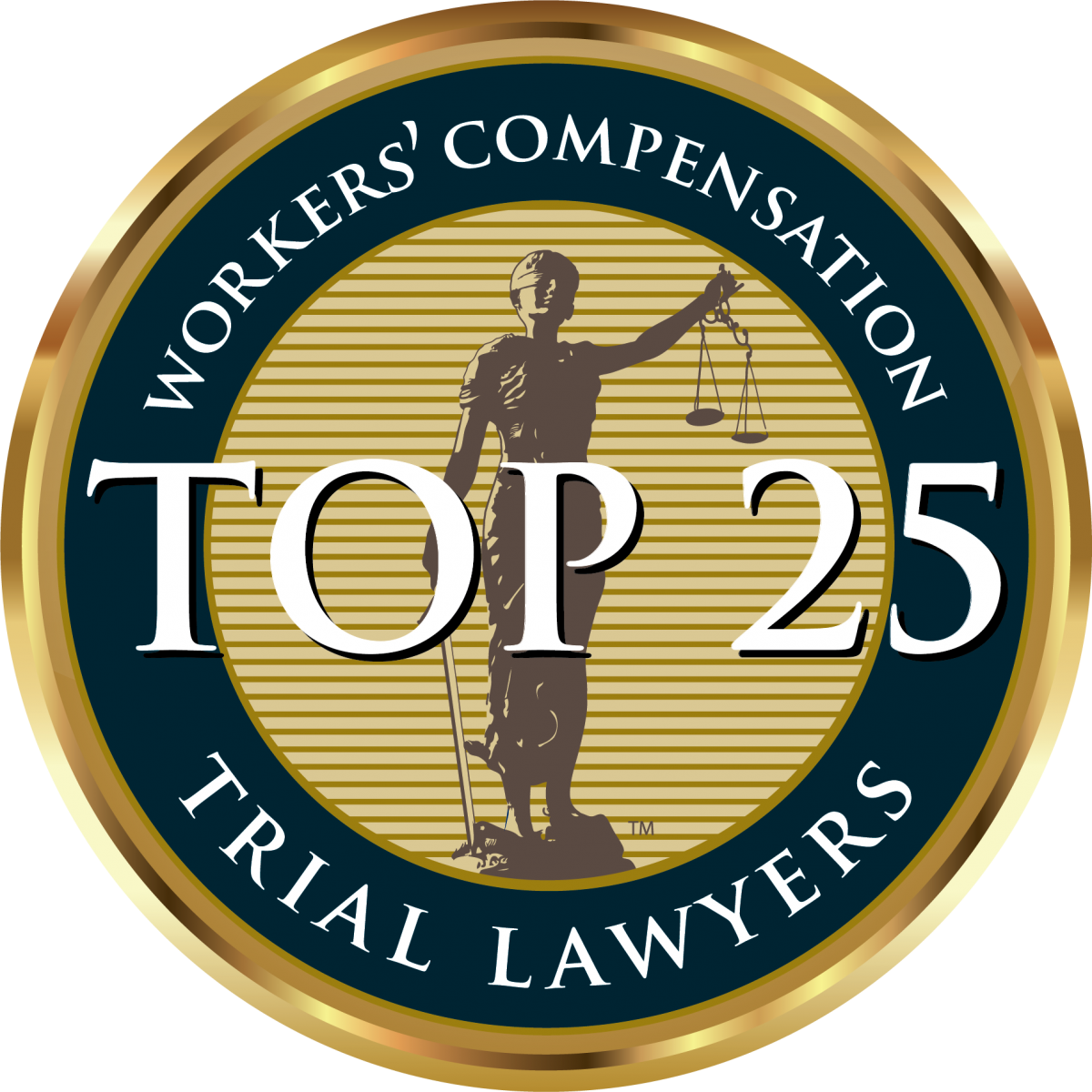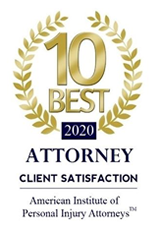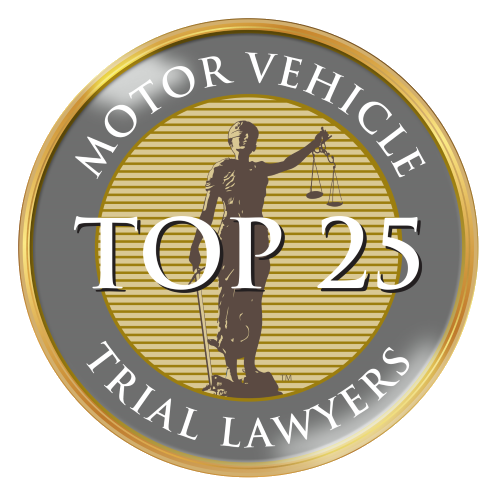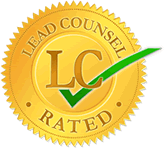Colorado product liability laws ensure victims of defective products in Denver, Fort Collins, Colorado Springs and throughout Colorado aren't forced to pay medical costs for injuries that were someone else's fault. The things people buy that are supposed to benefit them can sometimes cause harm if the products are poorly made or dangerous by design. Here are some commonly asked questions about defective products, product liability and product liability claims.
Product Liability FAQs
- What should I do if I have been injured by a defective product?
- What is a product liability lawsuit?
- When are products considered defective or dangerous?
- What is the difference between negligence and strict liability?
- What is a breach of warranty?
- Can I still be awarded damages for a defective product if I did not purchase the product?
- What types of damages can I receive money for?
- I believe the death of a loved one was caused by a defective product. What can I do?
- Will the product automatically be recalled if my lawyer wins the case?
- Will filing a product liability claim cost me money?
What should I do if I have been injured by a defective product?
Your health and safety come first. If the product is still a danger (such as an electrical appliance with a short circuit that can cause a fire or electrical shock), don't put yourself at risk. Call 911 to get help. If you are bleeding a lot or have suffered a head injury, don't try to drive yourself to the hospital. You might faint or pass out while you are driving. Have someone else drive you, or dial 911 for an ambulance.
Once you are out of danger, you can start thinking about collecting evidence to help your lawyer make a legal case. Don't throw away the product that injured you. Take pictures of the defective product and any damage it caused to your property. Keep the product packaging, as well as the receipt that shows where you purchased the product. Keep the product itself in a safe place so your lawyer can have it examined by an expert.
Take photographs of your injuries and keep a journal of the accident. Write down the details of the accident, the comments of any witnesses and the contact information for anyone who saw you get injured. Most people who get injured by dangerous or defective products get hurt in their own homes, but occasionally an accident will occur in a public place such as a restaurant. Keep an accurate list of your symptoms and whether they get better or worse over time. Write down the date and length of any doctor's appointments and the distance you traveled to visit the doctor. Keep a record of how many days you are forced to take off work because of your injury, including doctor's appointments.
[ Back to Top]
What is a product liability lawsuit?
A product liability lawsuit is when an injured person sues the supplier, manufacturer, seller or provider of a product for damages because the injury was caused by a dangerous problem with the product.
There are three problems with a product that would allow for the filing of a product liability lawsuit, although a single lawsuit can cover more than one of these areas:
- The product is dangerous because it is defective.
- The product is dangerous by design.
- The product does not include the proper warning labels or instructions for safe operation.
When are products considered defective or dangerous?
A defective product is any product that doesn't do what its designer or manufacturer created it to do. Usually only defects involving injuries go to court. Some products are defective because there was a mistake at the factory where they were made. In this case the product you bought hurt you because it was broken when it was made. Other products nearly identical to your product will likely not be broken in the same way and thus they won't cause any injuries.
There are several different kinds of dangerous products. In a product liability lawsuit, a dangerous product is basically a product that can injure a person because of its design, because of its labeling or because of its defect. Some products are always dangerous, whether or not the person using the product follows the instructions written on the product label. These products are dangerous by design and are usually recalled when the manufacturer discovers the flaw. A product can also be dangerous if it does not include the proper warnings for ways the product could injure a person. If there was no warning printed on the product or its packaging, a person can collect compensation for an injury even if they were not using the product as it was intended to be used. In cases like this a lawyer makes the argument that even though the person using the product did not follow the product instructions, the manufacturer or designer should have expected the product might be used in such a way. The state and federal laws on warning labels are very complex. Contact Cliff Enten and his legal associates to get free legal advice that applies specifically to your defective products case. Serving Colorado Springs, Greeley, Denver and all of Colorado, our legal team can help you understand your rights.
[ Back to Top]
What is the difference between negligence and strict liability?
Negligence is when an injury occurs because of carelessness or improper safety precautions. For example, suppose a manufacturer knows when a product is used in a certain way it can injure someone. If the manufacturer takes no steps to warn people who buy the product of the possible danger (either with labels or advertising), then the manufacturer can be found by a judge to have been negligent in warning consumers about a potential hazard.
Strict liability means even though the manufacturer did everything that could be done to ensure no one was hurt by its product, it is still responsible for injuries caused by the product. Once a judge decides to accept a strict liability standard for your case, your lawyer will no longer have to prove any negligence or wrongdoing occurred.
Negligence is harder to prove than strict liability, but if a person or company involved in providing the product is found to be negligent, the judge will usually order an action be taken to stop such injuries from happening again.
What is a breach of warranty?
Over time, products eventually wear out and break. Often a product's packaging will include a piece of paper that explains how long the product is supposed to last if you bought it new. This piece of paper is called an express warranty. If the product breaks and injures you within the time it was supposed to still be working, you might be able to file a product liability claim. Your lawyer will argue either the product or the product design has a defect because it was supposed to last for a certain amount of time and it didn't, and that resulted in an injury.
Even if the manufacturer doesn't include an express warranty in the packaging, state laws establish implied warranties on the products you buy. An implied warranty basically means the product should work for its intended purpose and be safe to use for a reasonable amount of time. The laws for what a reasonable amount of time is can change from product to product, and often the intended purpose of a product has to be discussed in court. Contact our legal offices for a free complete case evaluation to find out if you can file a claim based on a breach of warranty. Often, we ask our clients to bring in their defective products to show to our lawyers. Based in Denver and Colorado Springs and serving all of Colorado, they can examine the evidence firsthand and decide on the best way to pursue your case.
[ Back to Top]
Can I still be awarded damages for a defective product if I did not purchase the product?
In recent years, it has become more common for damages to be awarded for injuries caused by dangerous products, even if the product was not owned by the person who was injured. People have been hurt while using yard care equipment, such as a lawn mower, that they borrowed from a neighbor. The largest number of product liability lawsuits is filed for compensation for injuries to children that were caused by defective toys. Some of these injuries occur while a child is playing at a friend's house or under another family member's supervision. State laws hold manufacturers who produce defective products responsible whether the product injures the owner, a friend or family member, or an innocent bystander. For more information on how you can get money for your medical bills by filing a product liability claim, contact Cliff Enten and his associates at Law Offices of Cliff Enten. Our experienced defective products lawyers can help victims in Denver, Colorado Springs and all of Colorado. We can make sure no one else is hurt by the same dangerous product.
What types of damages can I receive money for?
If your lawyer is able to win your product liability claim, you will be awarded payment for your medical treatment, lost wages and property damage. You may also be awarded money to compensate for your (and sometimes your spouse's) pain and suffering. If the person, company or manufacturer the court held responsible for producing a dangerous or defective product acted so badly the court wants to teach them a lesson, then more damages might be awarded. This type of compensation is called an award for punitive damages. A punitive damage is imposed both as a form of punishment and to warn other people or companies from acting in the same way in the future.
[ Back to Top]
I believe the death of a loved one was caused by a defective product. What can I do?
If you are a family member or a legal dependent, you can file a wrongful death suit. If you have legal access to the person's medical records, you should try to get them from the hospital that treated your loved one prior to death. Medical records are often the strongest piece of evidence when your lawyer is trying to prove the dangerous product was the cause of death. If you still have the dangerous product, it can also be used as evidence in court. Contact a lawyer as soon as possible. The state of Colorado places strict limitations on the amount of time you can wait before filing a claim. Cliff Enten can help you seek justice as you try to recover from the pain of losing a loved one.
Will the product automatically be recalled if my lawyer wins the case?
Although a product recall is never a guarantee, there are many ways in which a product liability claim can lead to a recall. Some legal claims can also cause a product to be recalled by catching the attention of government agencies that regulate the sale of such products. For example, a product liability lawsuit filed against a drug company might catch the attention of the FDA (Food and Drug Administration), which could then issue a ban on the sale of the drug in the United States.
In product liability cases where the danger is proven to be great enough, a judge can order a company to recall a product. Most recalls ordered by judges have been for defects in the design of a product, rather than a few products exhibiting a single manufacturing defect. If the manufacturing defect is fatal, a judge-mandated temporary recall is much more likely. Recall by command of a judge is rare, however, and most recalls are issued voluntarily.
There are a lot of different things companies consider when deciding whether or not to do a recall. Large companies who care a great deal about maintaining consumer trust are likely to do a recall at the first sign of danger, especially if it might result in bad press. All companies will take into account the cost and likelihood of future lawsuits. If the company is forced to pay you a large sum for damages, then they are more likely to take positive steps to prevent any similar lawsuits from reoccurring.
Even if your case does not trigger a recall, it will still likely result in improvements to product safety. According to a recent study of manufacturers involved in legal claims, those who were targeted by a product liability lawsuit improved the safety of their products after the case was settled 80 percent of the time. Too often, companies either knowingly or unknowingly manufacture and sell defective products to consumers. Residents of Denver, Colorado Springs and all of Colorado have the opportunity to force corporations to stop making products that hurt their customers. Contact our Colorado product liability lawyers to find out if you have a case.
[ Back to Top]
How will the attorney be paid? Will I have to pay legal fees in advance?
The fees Cliff Enten, or one of his associates, will collect for handling your case will be very affordable. The Law Offices of Cliff Enten charges what's called a contingency fee. This means you won't have to pay us any legal fees unless we win your case. These fees will be discussed with you at the time of your consultation.
If you have suffered a personal injury from one or more defective products and you live in Denver, Greeley or any Colorado city, contact Cliff Enten to find out if our law firm can help you obtain a product liability settlement.
[ Back to Top]









